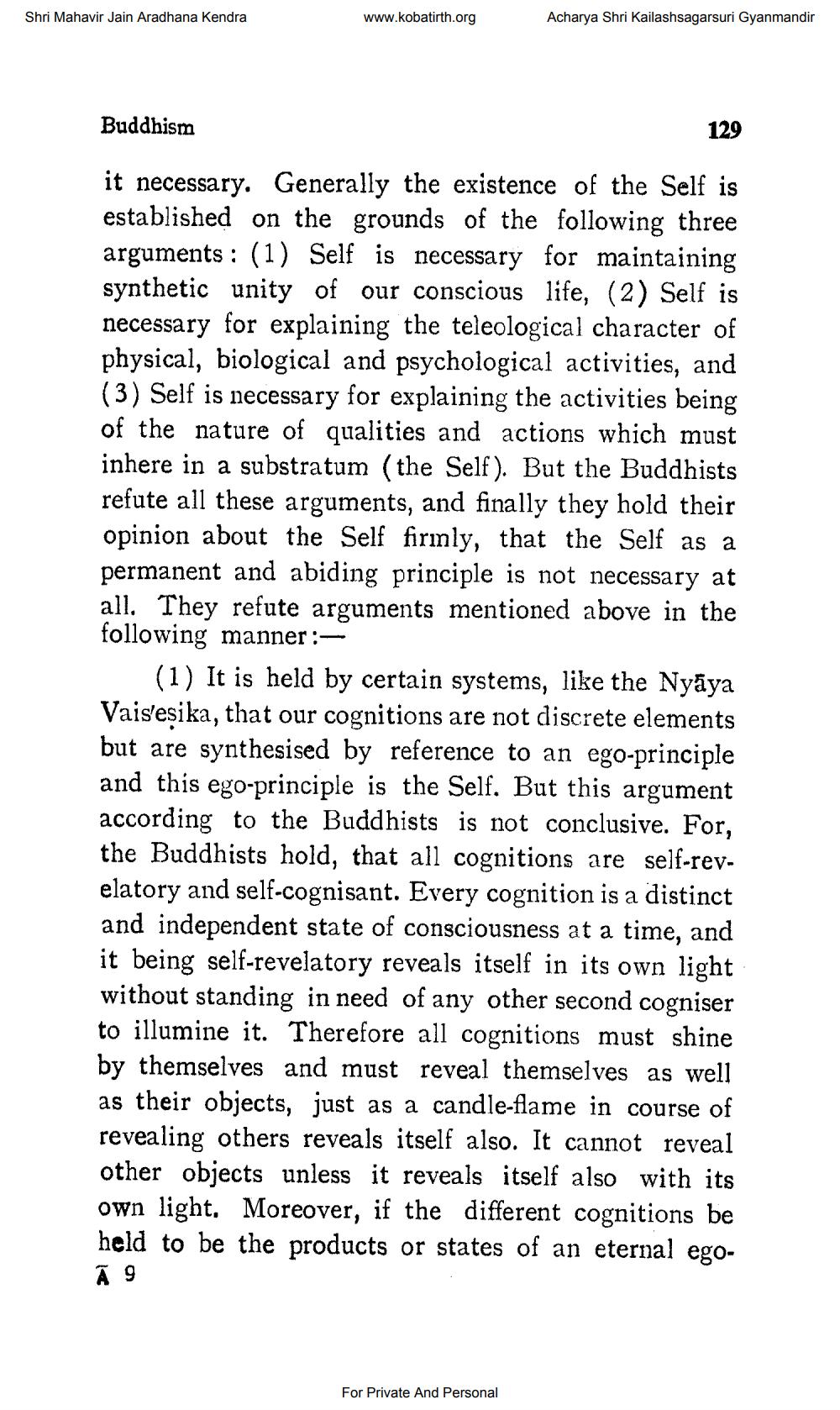________________
Shri Mahavir Jain Aradhana Kendra
www.kobatirth.org
Acharya Shri Kailashsagarsuri Gyanmandir
Buddhism
129
it necessary. Generally the existence of the Self is established on the grounds of the following three arguments: (1) Self is necessary for maintaining synthetic unity of our conscious life, (2) Self is necessary for explaining the teleological character of physical, biological and psychological activities, and (3) Self is necessary for explaining the activities being of the nature of qualities and actions which must inhere in a substratum (the Self). But the Buddhists refute all these arguments, and finally they hold their opinion about the Self firmly, that the Self as a permanent and abiding principle is not necessary at all. They refute arguments mentioned above in the following manner :
(1) It is held by certain systems, like the Nyāya Vais'esika, that our cognitions are not discrete elements but are synthesised by reference to an ego-principle and this ego-principle is the Self. But this argument according to the Buddhists is not conclusive. For, the Buddhists hold, that all cognitions are self-revelatory and self-cognisant. Every cognition is a distinct and independent state of consciousness at a time, and it being self-revelatory reveals itself in its own light without standing in need of any other second cogniser to illumine it. Therefore all cognitions must shine by themselves and must reveal themselves as well as their objects, just as a candle-flame in course of revealing others reveals itself also. It cannot reveal other objects unless it reveals itself also with its own light. Moreover, if the different cognitions be held to be the products or states of an eternal egoĀ 9
For Private And Personal




